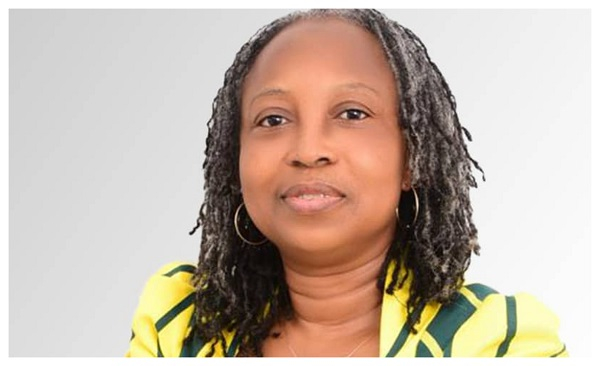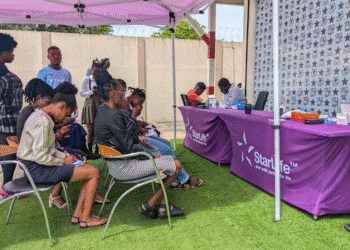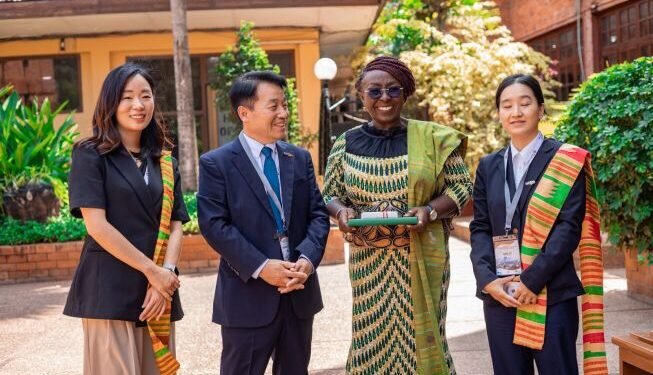The National Insurance Commission (NIC) has unveiled a groundbreaking strategic direction aimed at expanding insurance coverage to Ghana’s informal sector, which represents the largest share of the nation’s workforce.
The initiative aligns with the government’s economic reset agenda and seeks to provide much-needed financial security and hope to a demographic that has historically been underserved by the insurance industry.
Announcing the plan at the 3iC Inclusive Insurance Innovation Challenge in Accra, Commissioner Dr. Abiba Zakariah emphasized that the informal sector, which accounts for about 80 percent of Ghana’s total workforce, has long been overlooked in insurance penetration efforts.
Currently, Ghana’s insurance penetration stands at a modest 1 percent of GDP—significantly lower than the African average of 3 percent and far below the global average of 6 percent.
Championing Innovation for the Agriculture Sector
The 3iC event featured an intense pitch competition involving 10 insurance companies, all presenting innovative insurance products tailored to the agricultural sector. Agricom Assurance emerged as the top winner, followed by Wellmax in second place and Resolut Business Solutions Limited in third.
Dr. Zakariah highlighted that agriculture remains the backbone of Ghana’s informal economy, and creating innovative, accessible, and affordable insurance solutions for this sector is key to improving financial resilience.
She revealed that the NIC would be introducing an agri-insurance concept with a premium subsidy to address farmers’ financial challenges in paying insurance premiums. The subsidy aims to ease the burden on farmers and encourage wider participation in insurance schemes.
Tailored Products for Unique Realities
One of the core messages from Dr. Zakariah was that previous insurance products failed to adequately consider the cultural and financial realities of informal workers. This mismatch has contributed to low adoption rates, leaving millions of workers vulnerable to financial shocks.
To reverse this trend, the NIC is committing to the development of insurance products specifically designed for informal sector workers. This includes creating flexible payment plans, simplified claims processes, and coverage that reflects the risks faced by traders, artisans, farmers, and small-scale entrepreneurs.
Addressing the challenge of accessibility, Dr. Zakariah stressed that technology would play a pivotal role in delivering insurance products to underserved communities. Traditional distribution channels—such as opening physical offices in every region—are costly and impractical.
Instead, the NIC is exploring digital platforms, mobile technology, and agent networks to reach informal workers quickly and efficiently. With the growing adoption of mobile money and digital financial services across Ghana, technology-driven insurance distribution offers a cost-effective way to bridge the accessibility gap.
Restoring Trust in the Insurance Industry
A recurring theme in Dr. Zakariah’s address was the urgent need to restore public trust in the insurance industry. She acknowledged that a lack of trust has been a major disincentive for many Ghanaians to engage with insurers, particularly those in the informal sector.
To counter this, the NIC has outlined a comprehensive strategy aimed at rebuilding consumer confidence. This involves enforcing strict compliance with industry regulations, improving transparency in claims processing, and holding insurers accountable for service quality.
The NIC’s new approach marks a decisive shift in Ghana’s insurance landscape. By focusing on the informal sector—which includes smallholder farmers, market traders, transport operators, and artisans—the commission aims to create an inclusive insurance ecosystem that supports economic stability and resilience.
With the combined efforts of policy innovation, technology adoption, and trust-building measures, the NIC hopes to close the protection gap and raise insurance penetration levels closer to continental and global benchmarks.
“The informal sector is the backbone of Ghana’s economy. If we are serious about building a resilient nation, we must protect the livelihoods of those who work tirelessly every day without a safety net.”
Dr. Abiba Zakariah
The unveiling of this plan signals a promising chapter for Ghana’s insurance industry—one that seeks not only to grow market share but also to empower millions of Ghanaians who have been left out of the financial protection loop for far too long.
READ ALSO: Government Moves to Revive Dormant Komenda Sugar Factory























